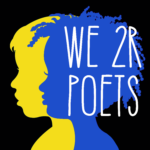Winner of the 2019 Acheven Book Prize for Young Adult Fiction

“I always knew I’d get a priest out of one of them.” This was my (Irish) grandmother, visibly satisfied with her remarkable foresight, on Christmas day, in Liverpool, when I was eight. The reason she was congratulating herself with such a particularly high smugness quotient that day was because I’d spent almost the entire holiday absorbed in the full-colour edition of the Children’s Illustrated Bible that I’d requested from her as a present. But she was wrong. I hadn’t asked for the gift out of any sense of piety. No, I was interested only in the stories as stories – Noah and his ark, Moses parting the Red Sea, plucky Joseph and his coat of many colours – stories as fabulous to me then as anything from the Tales of the Arabian Nights, another personal favourite at the time. Stories were everything. Even then.
Even before then. A much earlier childhood memory finds me in the hard wooden front pew of the Holy Ghost church with my father. I’m little more than a toddler, four, or five maybe. High up on the wall behind the altar, filling the entire space, looms Georg Mayer-Marton’s astonishing Pentecost Mosaic – far larger and more vivid than anything else in the church, or indeed the whole neighbourhood. I listen as my father softly whispers the story behind the mesmerising mural before us. Tongues of Fire, from heaven, from the Holy Ghost Himself, no less, bringing the fiery gift of language to the twelve Apostles, so that they can go everywhere around the world convincing people with their story. That’s the gift I want. That’s me. I’m that child, but with a twist. I want to charm everyone with my stories, not theirs.
I’m a precocious child, too. I teach myself to read and write before I go to school. I had to beat the Holy Ghost to it as it seemed to me He’d stopped making house calls for some reason. So, while my classmates are getting to grips with the trickier bits of ‘Janet and John’, I’m away with the Headmistress in her office, enjoying private one-to-one discussions about some of the dodgier aspects of Enid Blyton’s class system in the books of Noddy, or some such thing. “But, Gloria, why aren’t the goblins allowed to drive cars? No wonder they’re so naughty!” And, after a contemplative suck on her pipe, the Headmistress would remove it from her mouth and say something like, “Yes, good point,” in a long, drawn-out fashion. And then I would take out my pipe, nod in acknowledgement, and eventually make another very clever and insightful point. Or something very much like that. Possibly.
Fast-forward twenty years and I’m sitting on another hard wooden bench, this time in the Wilson Library of the University of Minnesota. I’m a scholarship student enrolled on a PhD in English. I’ve already been at it for three years and I’m only at the point where students in the UK begin their PhD – ‘all but dissertation’. The prospect of spending another three years writing about somebody else’s writing fills me with a sense of impending doom. I need to be at it myself. No time to lose. I need to write. I bail, I fly home, to the UK, to Liverpool. There, I write.
But, I write…very slowly. I fold envelopes, scraps of paper, anything, horizontally, into three, and write a single sentence down the left hand side, then I open it out and rewrite the sentence in the middle fold, and then I repeat this exercise in the final third, all in search of perfection. It takes me a year to write a 3,000 word story about my Irish grandmother. I may as well have been trying to sculpt it letter by letter into the side of a mountain. It takes twelve years for this story to make it into print. In the meantime I use it to woo the woman I eventually marry, reading it to her one night in our student halls (teacher-training, London). The charm works.
Still, I write. I get faster. More stories appear and make into print more quickly, in good journals – The London Magazine, Aesthetica, and so on. But yet, no doors open. I go on.
Fast forward another twenty years. We have two daughters now and our literary / life pilgrimage has settled us near Canterbury (‘the hooly blissful martir for to seke’). Our younger daughter is at this time eight years old. She loves Louis Sacher’s fabulously inventive and funny stories about Wayside School to distraction and we read three of them, every night, at bedtime, over and over, for more than a year. She is frustrated that only three volumes exist and laments this sad fact nightly. So I decide to write another one, for fun, a form of fan fiction, and include her in it as a character, one who has wild adventures at wacky Wayside School with Todd, Maurecia, Dana, the three Erics, Mrs Gorf (who can turn children into apples) and everyone else there. We print up a copy and give it to her as a surprise gift at Christmas. Needless to say, it is a big hit. My wife gives me the best advice that anyone ever has. She says, “This is what you should do.”
When I came to write the first page of The Little House on Everywhere Street, my Acheven prize-winning novel for YA readers of all ages, I knew, with absolute certainty, yes, this is exactly what I should be doing. Everything came together, the years of effort. The writing was fun, not at all like sculpting a cliff-face, and I believe one hundred percent that it reads that way. I wanted the novel to be both well-written and as entertaining as I could make it. That the novel has been honoured by the award of this inaugural prize recognises that fact and means everything to me.
All those years ago my Irish grandmother started me off, but not quite how she imagined. I took it from there.
